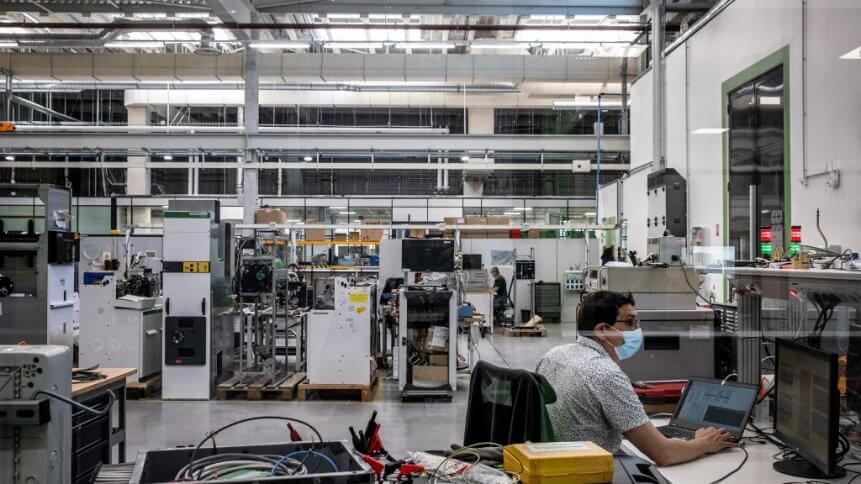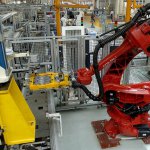Behind the buzzwords: what is intelligent automation, really?

While the tech industry is no stranger to a buzzword, one that seems to have bubbled over into the mainstream over the last 18 months is intelligent automation. In our jargon-heavy tech world, as nascent technologies, ideas and solutions are invented, we ascribe to them new monikers that, just as quickly as they rise, become hashed out, and somewhat overused.
When we talk about intelligent automation, it is crucial to separate the wheat from the chaff since, although relatively new on the business process transformation scene, its potential to revolutionize business processes is massive. But if we are to truly unleash its power, we must first understand it.
Back to basics
In essence, intelligent automation is the combination of multiple process automation technologies together into a single platform or solution. Those process automation technologies include low-code, robotic process automation (RPA), built-in workflow, integration platforms, and intelligent business process management suites (IBPMs). Using any combination of these to automate business processes qualifies as intelligent automation.
The difference between intelligent and hyperautomation is often queried, and there’s merit to that line of questioning. The two are very similar, created by technology research analysts. While Forrester coined the phrase intelligent automation, Gartner came up with hyperautomation. Really, they mean the same thing.
Intelligent automation vs RPA
Next, it is important to recognise the role that robotic process automation (RPA) plays as part of intelligent automation. RPA focuses on automating repetitive and rules-based on-screen processes – intelligent automation does the same job, but in addition to using RPA techniques, it incorporates other artificial intelligence (AI) technologies (like machine learning, natural language processing, structured data interaction, intelligent document processing).
RPA, when combined with platform as-a-service technologies (PaaS) such as low-code, can automate interactions with existing systems on a screen. In effect, what the robot is able to do is replicate the actions that a person takes when they are operating various different systems, and do those things automatically.
For example, opening a system, accessing some data, copying it, pasting it to another system, generating a report, emailing that report to someone. This is a process flow, and a robot can be instructed to replicate that exact process flow. It’s especially effective for repetitive and tedious tasks; the robot can take that activity and free your people up to work on other more meaningful tasks.
What this means for business
The importance of intelligent automation in transforming business processes cannot be understated. It can unlock infinite opportunities for growth by relieving teams from the necessary but repetitive or high-volume tasks that take up large chunks of their time and energy. Used in customer experience settings, it has the capability to make huge positive impact, since employees’ newly liberated time can be spent addressing more complex customer interactions and doing more cognitive, imaginative, and interpretive work. Where menial tasks can be assigned to a robot, it means actual people are freed up, enabling them to deliver fantastic experiences for customers.
We humans seem to have an intrinsic reluctance to trust robots, but we needn’t. We can trust them – we just have to program them correctly and select suitable tasks. You can rest assured that a robot will do precisely the same process with no deviation from what you ask it to do. RPA robots don’t make mistakes or stop for any breaks – for the right type of tasks, they are better suited to the work than humans are. The analysts also believe that we need to put our trust in automation and software robots. I particularly liked this quote from a webinar we ran with Forrester in 2020: “Every process within an organization needs to be automated in software, or else be liable to failure, and the consequences of failure.”
YOU MIGHT LIKE

Go big with automation efforts, or risk falling behind
For me, this provides a real-world definition of intelligent automation in practice. Intelligent automation is the automation of business processes at scale. Plus, the quote demonstrates where we are headed – the idea of automating everything in software, so that those processes can be operated from anywhere, at any time. It’s been proven in the last year, with lockdowns and restrictions, because processes are no longer reliant on people being in specific locations, with access to certain paper, machines, etc in that location. Intelligent automation is really about process automation at scale, to address these issues.
None of this is to say that automation and robots will one day rule the world; people will always be needed in organizations. You need a human to build an RPA process – a robot can’t think of what is needed to build the set of tasks for another robot. Intelligent automation gives you the best of both worlds. Build faster, reliable processes that are virtually infallible. Use your people for the human interaction side of your business and for the planning, creative and intellectual responsibilities that only a human being has the ingenuity and talent to deliver.
Side by side, people and robots can develop highly competent, successful operations and deliver outstanding CX, every single time.
Article contributed by Yad Jaura, Product Marketing Manager at Netcall








